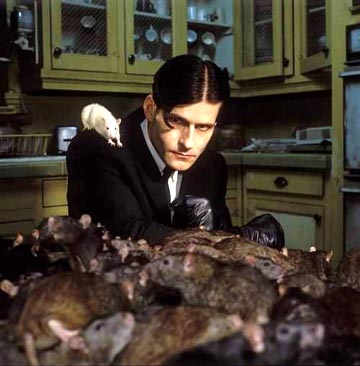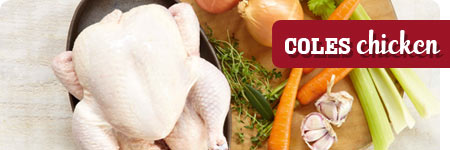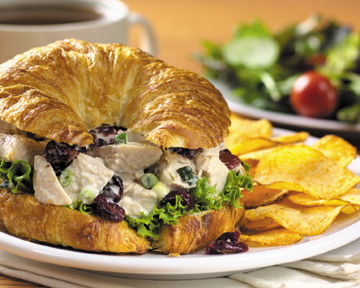Giving food safety – or any – advice to pregnant women is fraught with angst. And probably a lot of hypocrisy if you’re a dude.
I don’t want to freak anyone out, especially expectant mothers, but also have a responsibility to share accurate, evidence-based information if I know something about, say, food safety.
The certainties of youth left me long ago.
But certainties were on full display in an article distributed by the Australian Associated Press on April19, 2011, entitled, Pregnancy diet overkill.
(3)(1).jpeg) Among the nosestretchers offered up by dietician and author Tara Diversi, quoted in the AAP story (I’ll put quotes from Tara or the story in italics, with a bullet, and my responses in something other than italics; and the comments at the bottom from NSW Food Authority will be in italics):
Among the nosestretchers offered up by dietician and author Tara Diversi, quoted in the AAP story (I’ll put quotes from Tara or the story in italics, with a bullet, and my responses in something other than italics; and the comments at the bottom from NSW Food Authority will be in italics):
• "It’s not that you’re at higher risk (of food poisoning) being pregnant."
No. A Dec. 2007 review of listeria in pregnancy states,??“One of the most important changes during pregnancy is the down-regulation of the cellular immune system. Because the fetus is genetically different from the mother, the body treats it as a graft. To prevent the maternal immune system from rejecting the fetus, cell-mediated immunity must therefore be suppressed during pregnancy. This is favored by high levels of progesterone. However, reduced cell-mediated immune function leads to increased susceptibility of the woman and her fetus to infections by intracellular pathogens such as Listeria monocytogenes. That is why pregnant women are 20 times more at risk of contracting listeriosis than are other healthy adults. Pregnant women account for 30% of all cases of listeriosis and 60% of cases among persons 10 to 40 years of age.??“Typically, systemic infection occurs most frequently after ingestion of food contaminated with L monocytogenes. The bacteria cross the mucosal barrier of the intestine, probably aided by active endocytosis of organisms by epithelial cells. Once in the bloodstream, bacteria spread to different sites, but they have a particular affinity for the central nervous system or placenta. While circulating, the bacteria are internalized by macrophages and other plasma cells and are thereafter spread cell-to-cell through phagocytosis. As a result, antibodies, complement, and neutrophils become unable to protect the host.”
Pregnant women are about 20 times more likely than other healthy adults to get listeriosis. About a third of all reported cases in Illinois happen during pregnancy. Infection during pregnancy may result in spontaneous abortion during the second and third trimesters, or stillbirth.
The advice from the U.S. Centers for Disease Control is clear: Do not eat hot dogs, luncheon meats, or deli meats, unless they are reheated.
It has been documented that many pregnant women are not aware of the risks associated with consuming refrigerated, ready-to-eat foods like cold cuts.
Researchers reported in the Australian and New Zealand Journal of Health that in a survey of 586 women attending antenatal clinics in one private and two major public hospitals in New South Wales between April and November 2006, more than half received no information on preventing Listeria.
• But who would have thought the humble alfalfa sprout could be a cold-blooded killer in disguise?
Outbreaks of foodborne illness related to raw sprouts happen frequently. A table of North American raw sprout-related outbreaks is available at
http://bites.ksu.edu/sprout-associated-outbreaks-north-america
• Diversi says there hasn’t been a reported incident of poisoning from undercooked eggs since 1970s. "(Some of the advice) is weird. It’s not like we’re a Third World country," she says.
No. Hundreds of people have been sickened in Australia in the past five years from consuming undercooked eggs or dishes containing raw eggs, including 111 sick with salmonella from home-made aioli — a garlic mayonnaise that includes raw egg – at the Burger Barn in Albury, Australia last year. Other Australian outbreaks are available at these links.
http://barfblog.foodsafety.ksu.edu/blog/137965/07/12/25/raw-eggs-sicken-50-aussies
http://barfblog.foodsafety.ksu.edu/blog/139946/08/12/29/136-hospitalized-australian-bakery-fined-40000
http://barfblog.foodsafety.ksu.edu/blog/139553/08/02/17/tasmania-rest-australia-wake-raw-egg-risks
http://barfblog.foodsafety.ksu.edu/blog/140014/09/02/08/raw-egg-hollandaise-sickens-20-upscale-retirement-home
• "It’s hard, because as a dietitian you don’t want to give blanket advice. But if I were pregnant myself I would eat poached eggs and I would eat from salad bars and I would eat lean meats (3)(1).jpeg) because I know that they’re going to give me energy and the likelihood of getting food poisoning from it is relatively low. The trick is to limit the risks by buying your lunch from a reputable place with a high turnover.”
because I know that they’re going to give me energy and the likelihood of getting food poisoning from it is relatively low. The trick is to limit the risks by buying your lunch from a reputable place with a high turnover.”
No. This sounds suspiciously like the terrible and libelous advice issued by the Motherisk team last year at Toronto’s Hospital for Sick Children, in which they stated,
“pregnant women need not avoid soft-ripened cheeses or deli meats, so long as they are consumed in moderation and obtained from reputable stores.”
I have no idea what a reputable source is. Certainly doesn’t have anything to do with microbiology.
Fortunately, the folks in Sydney at the New South Wales Food Authority comprehend some risk communication basics and fired out their response within a day. Excerpts below:
In its role as Australia’s first and only through-chain food regulatory agency the NSW Food Authority is responsible for providing consumers with safer food and clearer choices.
The Authority maintains a segment on its website dedicated to pregnancy and food safety.
It clearly states the best way to meet you and your baby’s nutritional needs is to eat a wide variety of nutritious foods.
These should include:
• bread, cereals, rice, pasta & noodles preferably wholegrain or wholemeal
• vegetables & legumes
• fruit
• milk, yoghurt, hard cheese preferably low fat
• meat, fish, poultry, cooked eggs & nuts.
The Authority provides information about how best to enjoy those foods safely, what foods to avoid during pregnancy and provides alternatives to foods identified as having a higher risk of containing certain bacteria that could be harmful to pregnant women and their unborn babies.
The Authority provides information on Listeria to pregnant women to allow them to make an informed food choice regarding the risk and how to minimise it. It is not to say that every piece (1).jpg) of deli meat has Listeria on it, but some foods have a higher potential rate of contamination than others, and it is better to avoid them.
of deli meat has Listeria on it, but some foods have a higher potential rate of contamination than others, and it is better to avoid them.
The risk of acquiring listeriosis is low. However the consequences for a pregnant woman contracting listeriosis are dire.
While the Authority may be accused of ‘being over the top’, we may also be accused of neglecting pregnant women if we did not provide this information so pregnant women could make informed choices in what they eat.
Over the last 5 years in Australia there have been between 4 and 14 cases of listeriosis diagnosed in pregnant women or their babies each year. These infections have resulted in the deaths of 8 foetuses or newborn babies.
Rates of listeriosis are increasing in Europe including France where they have increased over the last five years.
Listeriosis rates in France are twice that of Australia.
 handle, Drizzt1 hangs out on the official fan message boards on the Avs’ website.
handle, Drizzt1 hangs out on the official fan message boards on the Avs’ website.
(3).story.jpeg)
(3)(1).jpeg) Among the nosestretchers offered up by dietician and author Tara Diversi, quoted in the AAP story (I’ll put quotes from Tara or the story in italics, with a bullet, and my responses in something other than italics; and the comments at the bottom from NSW Food Authority will be in italics):
Among the nosestretchers offered up by dietician and author Tara Diversi, quoted in the AAP story (I’ll put quotes from Tara or the story in italics, with a bullet, and my responses in something other than italics; and the comments at the bottom from NSW Food Authority will be in italics):(1).jpg) of deli meat has Listeria on it, but some foods have a higher potential rate of contamination than others, and it is better to avoid them.
of deli meat has Listeria on it, but some foods have a higher potential rate of contamination than others, and it is better to avoid them.
.jpg) jobs due to the closure.
jobs due to the closure..jpeg) been recalled.
been recalled..jpg) closed for super-chlorination.
closed for super-chlorination. commonly known as candlenut.
commonly known as candlenut.
 to speed growth.
to speed growth. which became stuck in their throat and required a trip to hospital to have it removed, after eating food straight out of a take-away container, which had "softened" as a result of their meal being heated up in a microwave oven.
which became stuck in their throat and required a trip to hospital to have it removed, after eating food straight out of a take-away container, which had "softened" as a result of their meal being heated up in a microwave oven.